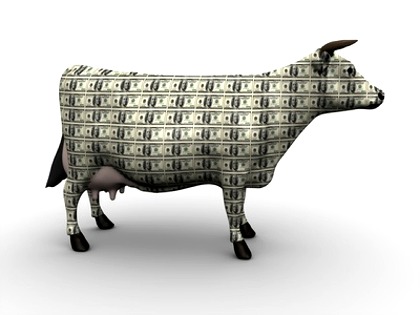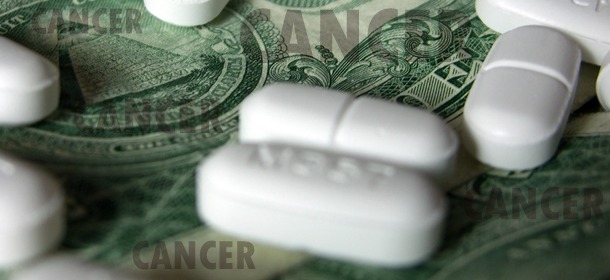Environment
Agribusiness Is Forcing Factory Dairy Farms Down Our Throats
The current move to drive milk prices down in the UK is sinister. If allowed to continued, dairy farmers will go out of business, leaving a vacuum that can only be filled with CAFOs.
Concentrated Animal Feed Operations – CAFOs – are one of Agribusiness’s greatest evils. In the dairy industry, they are designed to produce the greatest volume of milk for the lowest price. The real cost—in terms of animal suffering, creation of new diseases, environmental destruction, and milk that’s bad tasting and destructive to human health—isn’t factored into the equation. Agribusiness doesn’t pay those costs. But we do.
Those places that have been holding out against CAFOs are now being put under even more pressure. In the UK, the farmers who produce the vast bulk of milk sold in supermarkets are being driven towards CAFOs. Their milk isn’t the quality it should be, as it’s denatured through pasteurization, But it’s still a step above CAFOs. These farmers have suddenly and arbitrarily been informed that they must drop their wholesale milk prices by a whopping 16⅔%—from 30 pence to 25 pence per liter. It’s a figure so low that they cannot stay in business.
In this age of increasing prices, supermarkets are trying to force farmers to accept less than it costs to produce milk!
The UK Has Held the Line Against Dairy CAFOs.
At this point in the UK, there are no dairy CAFOs. One company has attempted to start a dairy CAFO, but community resistance, coupled with widespread concern, has managed to prevent their two attempts. Clearly, the citizens of England don’t want CAFOs. However, Agribusiness does. So, Agribusiness has taken a new approach. They intend to make it impossible run a dairy farm at a profit.
The industry is complex, with middlemen who buy directly from the farmers and sell to the supermarkets, making it difficult to point fingers. However, the simple fact is that virtually the entire supermarket industry in the UK decided all at once that they were going to lower the price they pay for milk from 30 pence to 25 pence.
Rather than go into the details, let’s just focus on the fact that it costs dairy farmers between 29 and 30 pence per liter to produce milk. That gives them no margin. They can survive for a time on that rate, but it leaves virtually no profit and absolutely no margin for problems or reinvestment for the future of the business. In other words, getting paid 29-30 pence results in, at best, a slow death for dairy farms.
The Guilty Parties
Since the move started, many of the supermarkets have eased their demands a bit. They’re getting relatively good press for it. But there’s no real benefit to the farmer when the easing isn’t enough to support a viable business. Asda (Walmart’s name in the UK) has agreed to pay 29½ pence a liter, which amounts to slow starvation. Coop, supposedly a business that operates ethically, has agreed to 29 pence. Oh, whoop-de-doo.
Farmers for Action asks that people not purchase milk products from the following, termed “who to avoid like the plague” (with comments added in italics):
- Asda (Arla): This is Walmart’s name in the UK.
- Dairycrest products: Products include Cathedral and Davidstow cheeses; Willow andClover, butters, not to mention lines of fake butter; Country Life milk, Frijj bottled shakes
- Wiseman Dairy products: milk under the labels Black & Whte, the One, Puriti, freshnlo, and Shock
- Muller products: Yogurts under the names Müller, Müller Breakfast Corner, Little Stars, Vitality, and Amoré. Note that only Vitality and Müller Breakfast Corner contain live probiotics, making most of this company’s products ones to avoid under any circumstances.
- Iceland
- McDonalds milk shakes
- Costa: Costa coffee shops operate a foundation for helping communities in impoverished areas. Apparently, part of their goal is to create poverty in areas close to home. Maybe they’ll create a foundation for UK poverty, too?
- Starbucks: Starbucks likes to claim that they source their coffee ethically. It’s too bad they don’t have the same policy towards milk.
- Lidl: Privately held, Lidl specializes in lowering prices, period.
- Farm Foods: Privately owned, Farm Foods specializes in processed frozen foods.
- Nisa Todays:Nisa is employee-owned. Apparently, their welfare concerns are focused solely on themselves.
- Netto: This Danish import recently sold out to Asda, which is Walmart’s UK extension. ‘Nuff said.
- Spar: Though not that extensive in the UK, Spar markets are the largest foodstore retailer in the world. In the food business, bigger is worser.
It’s not difficult to see that it’s Agribusiness that’s pushing the squeeze on dairy farmers. Although these are the worst offenders, Gaia Health suggests that all retailers that pay less than a living rate for milk should be treated the same. The fact that Coop pays more than the members of this list does not absolve them—especially considering the fact that they are member-owned and claim to support only environmentally friendly and humanitarian products.
The Goal
Clearly, the goal is to drive dairy farms out of business, leaving a gap that must be filled either by imports—which will almost certainly be from CAFOs—or result in CAFOs on UK soil. We know what CAFOs are:
- They produce new diseases, such as deadly E. coli.
- They produce unhealthy milk, full of pus, antibiotics, and other drugs.
- Their existence is based on extreme cruelty towards animals, causing lifelong suffering.
- They destroy the environment, poison legitimate farms in their area, and destroy the life in rivers and the oceans they empty into.
- They siphon money away from local communities into their owners’ offshore accounts.
What Do You Want?
Even the Archbishop of Wales has weighed in on this issue. Dr Barry Morgan puts it in perspective. The Independent quotes him:
It is astounding people will pay £1.98 for a two-litre bottle of Coke and think they’ve got a good deal while squabbling over the cost of milk which at £1 for 2.27 litres is half the price of Coke.
It is shameful and immoral it now costs many farmers more to produce milk than they are able to sell it for.
It’s up to us to decide what we want. If you a healthy environment, further degradation of milk, destruction of local economies, and the further harmonization of food into food-like substances around the world, then seek out the cheap milk products sold by the above list.
If you care about your health, the health of the environment, and the health of the economy, then avoid their milk and milk products like the plague.
Of course, if you really want to put an end to the Agribusiness takeover of your food, then take it a step further whenever you possibly can. Purchase milk directly from the producer. Better yet, purchase raw milk. Do everything you can to return our food economy to local organic supply.
Sources:
- Farmers step up milk protests over price cuts
- Don’t buy milk from Morrisons, Aldi, Lidl or Londis, say dairy farmers
- Dairy Crest plans to tackle milk price row
- Farmers for Action Consumer Info
- Milk price drop could cost Wolds farmers dearly
- Fake Dairy Presents Fake Plan to Create Fake Milk on Factory Farm
- Archbishop of Wales enters row over milk prices
Tagged agribusiness, cafo, concentrated animal feed operation, factory farms, milk prices, milk prices uk, supermarkets, supermarkets milk prices, uk milk

















Pingback: Fake Dairy Presents Fake Plan to Create Fake Milk on Factory Farm | Gaia Health